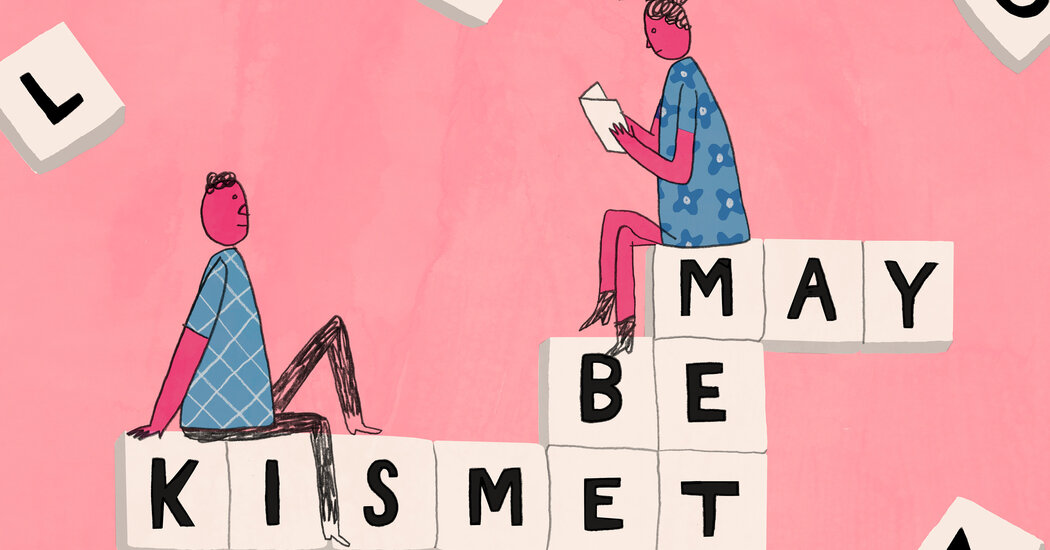
“Kismet,” I wrote. “Is that so much to ask?”
Meghan had convinced me to start online dating by promising she would do it with me. To cover our bases, we registered on two sites: OkCupid (which was free) and eHarmony (which was definitely not). Soon Meghan began going on dates, returning to our San Francisco apartment with accounts of cringe-worthy misrepresentations and awkward conversations.
I stayed home. I’d spotted zero signs of kismet (not even any artistic or literary overlap), and I refused to settle for less.
Sometimes Meghan would carry her laptop into my bedroom. Once she said, “I found someone for you. He’s cute and funny, but too short for me.” (I’m 5-foot-1.) Another time, we received the same message from the same guy: “I’m sorry, but I just have to lay it on the line and let you know, despite the fact you hear it all the time, that you’re undeniably, effortlessly and strikingly attractive.”
I grew discouraged. From what I could tell, the internet was where kismet went to die.
Then one day I noticed a guy who looked handsome, seemed smart and claimed to bake pies. Who doesn’t like a handsome, smart man who bakes pies? Also, he had filled in the prompt “Contact me if ___” with “you want to get out of town.” I was a traveler, always wanting to get out of town — so I “favorited” him, the OkCupid equivalent of sending over a drink.
After two days of flirtatious banter, I finally broached the question that had been bothering me: “You listed favorite music and films, but no books. Was that an oversight, or do you not read?”
“Recorded music has always spoken to me the way the written word speaks to most,” he replied.
I shut my computer. I was the daughter of bookshop owners, a lifelong collector of signed first editions and an author. Discussing literature was the height of stimulation. Reading was fundamental to my identity.






